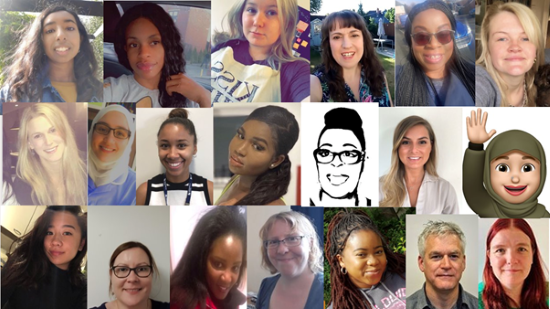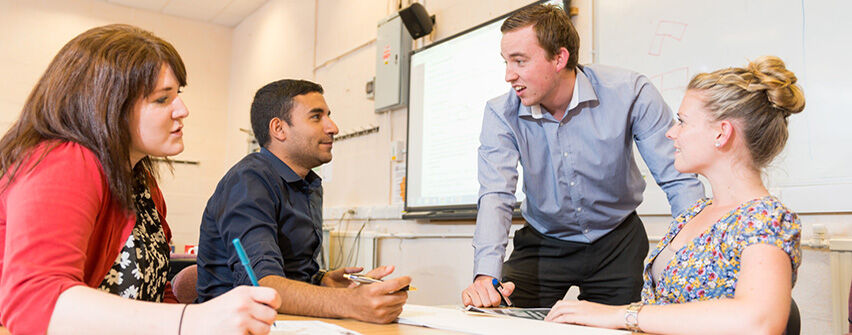A group of ten undergraduate students and ten staff from Health, Life Science and Education (HELS) Faculty collaborated as co-researchers to better understand the experiences of students at Birmingham City University (BCU) with an initial focus on Belonging and Mattering, Staff Student Dynamics and Time and Space. As the research evolved, this developed into a concern to better understand the experiences of students and to ‘walk in their shoes’ and culminated in 21 interviews with an intersectional sample. This blog is the personal reflections of two of these practitioners on the impact of this research and the collaborative research process.
and Miranda Barker - Lecturer in Health, Life Sciences and Education. With Rob Smith and drawing on the work of the HELS Practitioner Research Community led by Katy Vigurs
The ‘research into practice’ project, “Walking in Students’ Shoes” brought together a diverse team of ‘practitioner researchers’ to co-create an in-depth study of issues of diversity and inclusion within HELS. This research project recruited ten undergraduate students and ten members of undergraduate teaching staff to carry out participatory research over six months to better understand barriers to developing inclusive practitioner learning in the faculty.
We were an interdisciplinary research team that was intersectionally diverse across lines of race and ethnicity, social class, dis/ability, religion, age, gender and sexuality. The project enabled us, over time, to co-produce a space in which rather than being undergraduate students and teaching staff, we were peers, co-researchers and all learners; learning from each other as well as research in the field and our research participants. The majority of the team were new to social and educational research when they joined the project but shared a passion and commitment to develop a supportive and inclusive caring community at BCU. For the bloggers as lecturers at BCU, we were anxious to develop inclusive practice in our courses. One of the aims of the project was to enact a ‘care-full’ process of becoming a collaborative research team of and for HELS, and to develop the team of practitioner-researchers as a working example of an inclusive and reflexive learning community.
We wanted to share with you our reflections on the project and to draw out some implications for every teacher’s pedagogical practice in HELS. The project drew on principles from critical pedagogy, where we thought about Paulo Freire's calls for justice and transformation through relationship, reflective dialogue and responsive practice. This required us to be ‘present’, aware, responsive and attuned to the conditions that we and others were experiencing, recognising that this sort of participatory work is not neutral, but critical and political and this can often be uncomfortable.
Coming together as a collective sometimes required participants to muster individual and collective courage in order to think, feel and act differently. The concept of an 'ethics of care' foregrounded the significance of emotions and relationships in educational spaces. Care and relationality are often not visible, recognised, valued or given discursive space within the faculty and the project became a way of re-asserting their importance. Encountering difference through empathy, being open to the altering of perspective and building new alliances that challenged the hierarchical relationships beloved of the academy.
Working collaboratively within a research community of staff and students was a refreshing yet sometimes a challenging experience, where institutional protocols, processes and dynamics needed to broken, and rebuilt and structured within this new collaborative environment. All members had important contributions to make which necessitated trusting relationships and the creation of a ‘safe space’ so that we were able to work within a community unlike any that we have previously been involved in. This environment of trust facilitated a bridging of the gap between students and staff opening up possibilities for a deeper level of communication and understanding.
Reflecting on the voices of our students through these ‘Walking in their shoes’ interviews has had a powerful impact on our practice in teaching and learning and developed a sense of empathy and compassion for the experiences of our diverse community. Our passion to understand and respond to the challenges of diverse communities with higher education frequently was based on assumptions or generic research around diversity rather than the unique voices and personal experiences of individuals in our faculty. This research has influenced not only the way we consider our teaching and interactions with our student body; but also, in our understanding of the implications of our language, the environment and our understanding of what an ‘ethics of care’ means for Higher Education.
The project has the potential to model how we might build a radical practitioner-researcher community across the faculty and how this might inform bold and imaginative thinking about approaches to student learning and experience post-pandemic.


